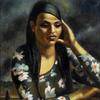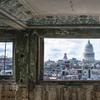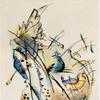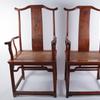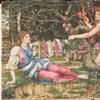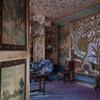Shelley Spector: Keep the Home Fires Burning at Philadelphia Museum of Art
- PHILADELPHIA, Pennsylvania
- /
- March 08, 2015
This spring the Philadelphia Museum of Art is presenting an exhibition of new work by Shelley Spector. The Philadelphia-based artist creates a site specific installation consisting of sculptures from reclaimed wood and textiles, furniture parts and other recycled materials. Some of the free-standing works resemble trees, while others are suspended from the ceiling. Spector’s work explores ways in which basic symbols, motifs, and patterns are recorded in objects, passed from person to person, and transmitted. Embedded in the artist’s work are many allusions to symbols common to Pennsylvania German, Indian and Jewish folk art.
A lifelong resident of Philadelphia, Spector is an artist and mentor for emerging talent who attended the Pennsylvania Academy of the Fine Arts and the University of the Arts, where she currently teaches. Her sculptures, paintings, and works on paper, notable for their innovative use of found materials, are represented in many private and public collections. She also heads SPECTOR projects, a program that presents unique concepts in the visual arts, including Artjaw.com, a blog about artists and creative professionals living in Philadelphia.
Keep the Home Fires Burning is the artist’s first solo museum show and represents new directions for the artist in scale, material and narrative. Central to the exhibition is a large embroidered Pennsylvania German “show towel,” from the Museum’s holdings that was designed by Frances Lichten (1889-1961). The work caught Spector’s attention when Dilys Blum, The Jack M. and Annette Y. Friedland Senior Curator of Costume and Textiles, invited the artist to conceive an exhibition in response to the Museum’s collection. Spector identified with Lichten’s use of imagery, her personal history and like-minded preoccupations. Lichten’s show towel is installed in the exhibition along with works by Spector dedicated to Lichten and partner Katherine Milhous. The title of the exhibition is a quote taken from a letter to Lichten from Milhous, and reflects the themes of the show.
Dilys Blum said: “Spector’s art draws upon universal human aspirations, involving hope, home, and connectedness. It bears strong affinities with work in our collection.”
The exhibition contains a participatory dimension that engages visitors. Spector will lead three workshops encouraging visitors to create decorative pincushions based on the traditional tomato-shaped craft form. They will have the option to take their pincushion home or contribute to the growing installation of needlework called Village.
Spector said: “I started collecting materials for this exhibition a year and a half ago, visiting nearby garage sales, flea markets and the Salvation Army. The material is, in a sense, random and the methods labor-intensive. It is in unifying various materials that I seek to create work that is personal. The more personal a work is the more universal the theme becomes, and I think these ideas will find community with visitors in the space.”
For the exhibition, Spector has produced a miniature book called Keep, in which she recorded her method of working using images captured on her iPhone. The book is available in the Museum shop.



